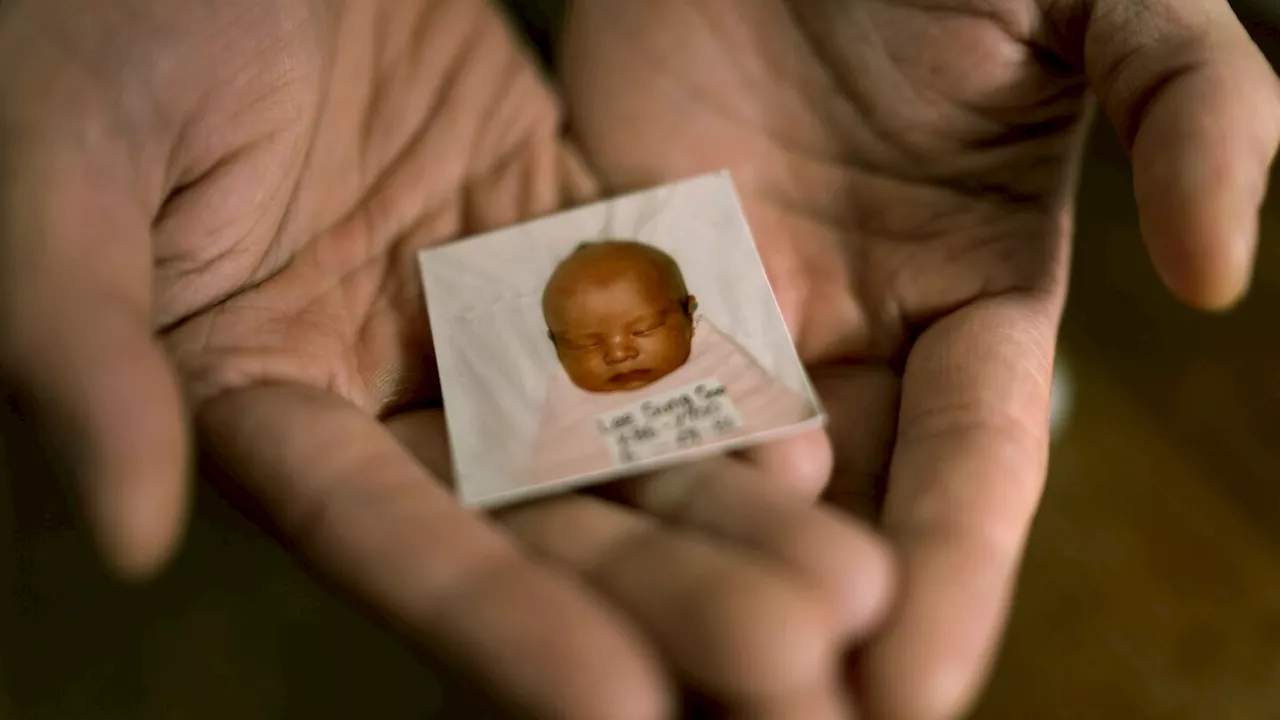The South Korean government, Western countries and adoption agencies worked in tandem to satiate intense demand for adoptable babies in the West, despite years of evidence they were being procured through questionable or downright unscrupulous means, an investigation led by The Associated Press has found.
Robert Calabretta holds his baby photo from before he was adopted out of South Korea to a family in the United States, Thursday, Feb. 15, 2024, at his apartment in New York. Robert Calabretta sits for a portrait at the restaurant where he works, Thursday, Feb. 15, 2024, in New York. Robert Calabretta rides the subway Thursday, Feb. 15, 2024, in New York, with the Empire State Building in the background. Robert Calabretta inspects wine glasses at the restaurant where he works, Thursday, Feb.
Calabretta is among a growing and vocal community of victims of an adoption system they accuse of searching out children for would-be parents, rather than finding parents for vulnerable children — sometimes with devastating consequences only surfacing today. In dozens of cases AP examined with Frontline, it found: Children were kidnapped off the streets and sent abroad. Parents claim they were told their newborns were dead or too sick to survive, only to have them shipped away. Documents were fabricated to give children identities that belonged to somebody else, leading adoptees to anguished reunions with supposed parents — to later discover they were not related at all.
In 2019, a Korean government agency told Calabretta they had found his father. He pictured himself as a rock on a beach, with two waves crashing over it. The first was joy — he had been loved. The other was fury that something profound had been taken from him. As the supply of biracial babies dwindled, South Korea turned to those it saw as unwelcome citizens: fully-Korean children of poor families and unwed mothers.
In 1976, Patricia Nye, east Asia director for ISS, concluded in a memo that the South Korean government was “entirely irresponsible.” What was happening, she wrote, was “close to being scandalous, the mass exportation of children, Korea has been called a baby factory.” In December 1976, the government facilitated a new law that widened the legal definition of adoptable children, removed judicial oversight and granted vast powers to the heads of private agencies.
She advised Lee to relinquish his son to Holt, which would pay for the surgery and find a home for a disabled child if he survived. The South Korean government declined to answer questions about its responsibility for the past, saying it will let the fact-finding commission finish its work. In a statement, the Health Ministry acknowledged that skyrocketing adoptions in the 1970s-80s were possibly driven by an intent to reduce welfare spending to balance cuts in foreign aid.
“All I heard was work faster, faster,” said one, employed at an agency from 1979 to 1984. “Do it faster and faster.” That picture was displayed everywhere — in subway stations, on lamp posts, on bags of snacks that advertised missing children, the Korean version of American milk cartons. But Bender was on the other side of the globe — sent by Holt to an American family who believed she was an orphan.
Now a scholar at Seoul’s Soongsil University, Noh said Holt workers understood the agency was charging adopters about $3,000 per child. Another former worker, employed at two agencies from the 1970s to early 1990s, said anybody facing challenges in raising their children would be strongly encouraged to give them away.
“After being told the lie,” the worker wrote, “the birth mother began to regain her peace of mind as expected.” Holt Korea has in recent years denied accusations of wrongdoing and attributed adoptee complaints to misunderstandings and Korea’s social welfare issues. Kim Jin Sook, president of Eastern, has said the agency carried out government policies to find homes for “discarded children.”In the 1970s, Francis Carlin ran South Korea’s Catholic Relief Services, which facilitated about 30 adoptions a month, compared to hundreds by the larger agencies.
Catholic Relief Services ceased its adoption program in 1974. Carlin remembers standing up at a meeting of humanitarian organizations: “We are beginning to slide into the abyss,” he said. Han plans to sue the South Korean government and Holt for robbing them of ever having a real relationship.She jabbed her finger at paperwork that sent her daughter away.
Their bond deepened slowly over years. They visited relatives, held hands, shared hotel rooms — the mother spoonfed her rice. The woman’s son changed his name to Park Joon Young, to share the “Young” syllable in line with Korean naming traditions for siblings.They were not related. She was not Park Joo Young — she was another, unknown, girl.
He had given her the name of her mother, and she worked up the courage to contact her. They took a DNA test.The agency told her that her paperwork was mistaken, and she wasn’t even the girl named on her documents, Park Sang Ok. She was Kim Eun-hye. She had mourned a father who wasn’t hers. In 2022, the agency emailed another adoptee that their “real background is different” than listed, apologizing that the discrepancy might “confuse” them.
Hospital officials told Calabretta’s mother to assume he had died. She went to a temple three times to offer a Buddhist ceremony to bless the soul of the dead.
South Korea Children General News AP Top News Business Public Broadcasting Service Associated Press World News Politics South Korea Government I
United States Latest News, United States Headlines
Similar News:You can also read news stories similar to this one that we have collected from other news sources.
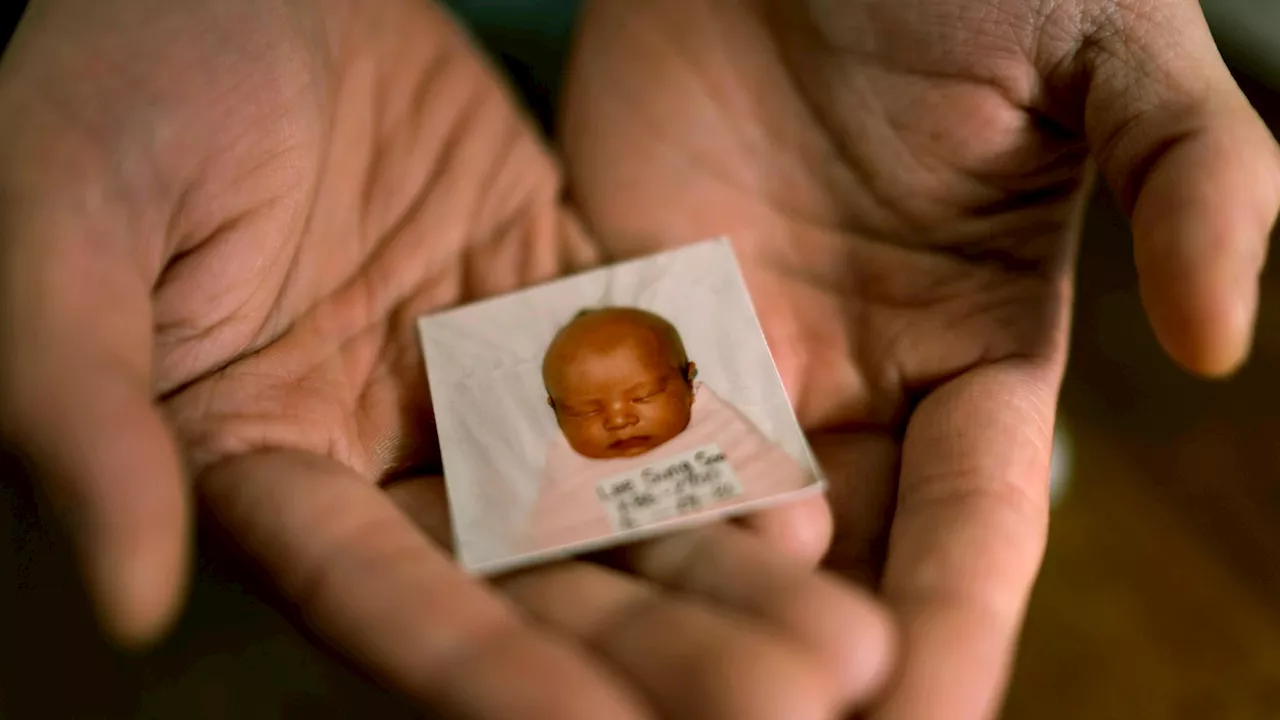 Rampant adoption fraud separated generations of South Korean children from their families, AP findsThe South Korean government, Western countries and adoption agencies worked in tandem to satiate intense demand for adoptable babies in the West, despite years of evidence they were being procured through questionable or downright unscrupulous means, a...
Rampant adoption fraud separated generations of South Korean children from their families, AP findsThe South Korean government, Western countries and adoption agencies worked in tandem to satiate intense demand for adoptable babies in the West, despite years of evidence they were being procured through questionable or downright unscrupulous means, a...
Read more »
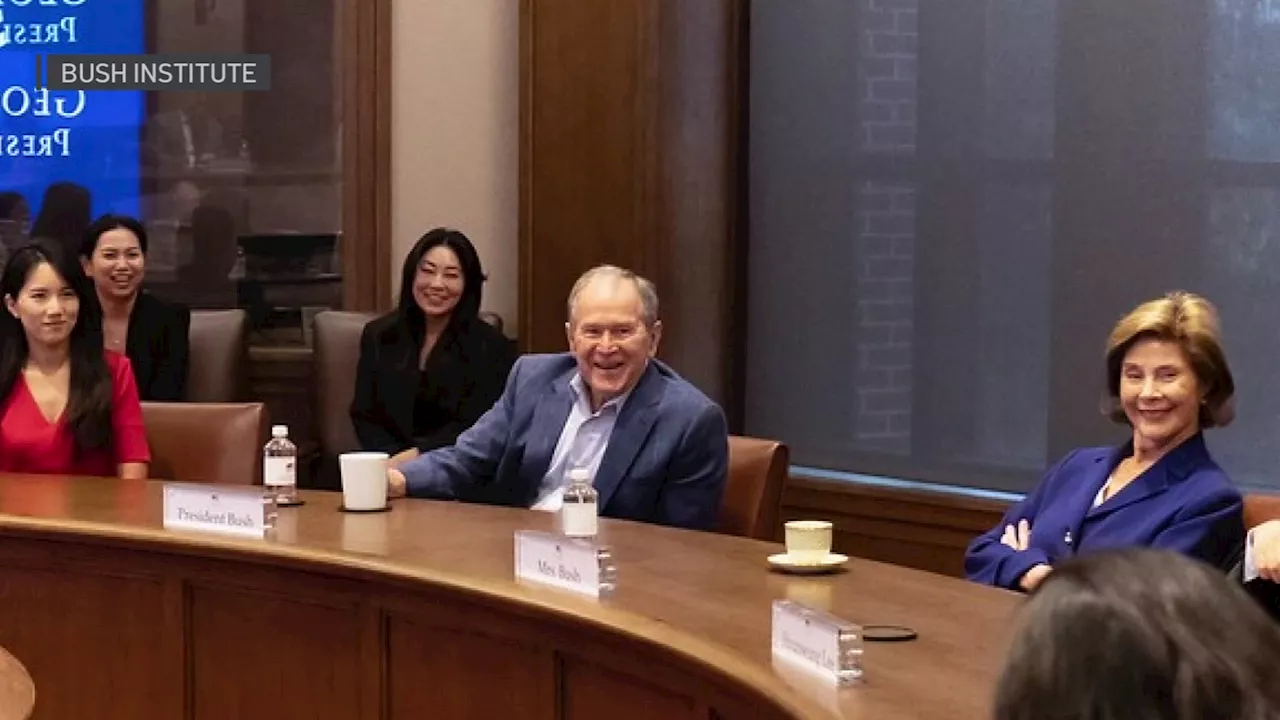 George W. Bush Institute hosts North Korean refugees for 3rd annual North Korean Human Rights WorkshopSome North Korean refugees are learning leadership skills to use their voices for change.
George W. Bush Institute hosts North Korean refugees for 3rd annual North Korean Human Rights WorkshopSome North Korean refugees are learning leadership skills to use their voices for change.
Read more »
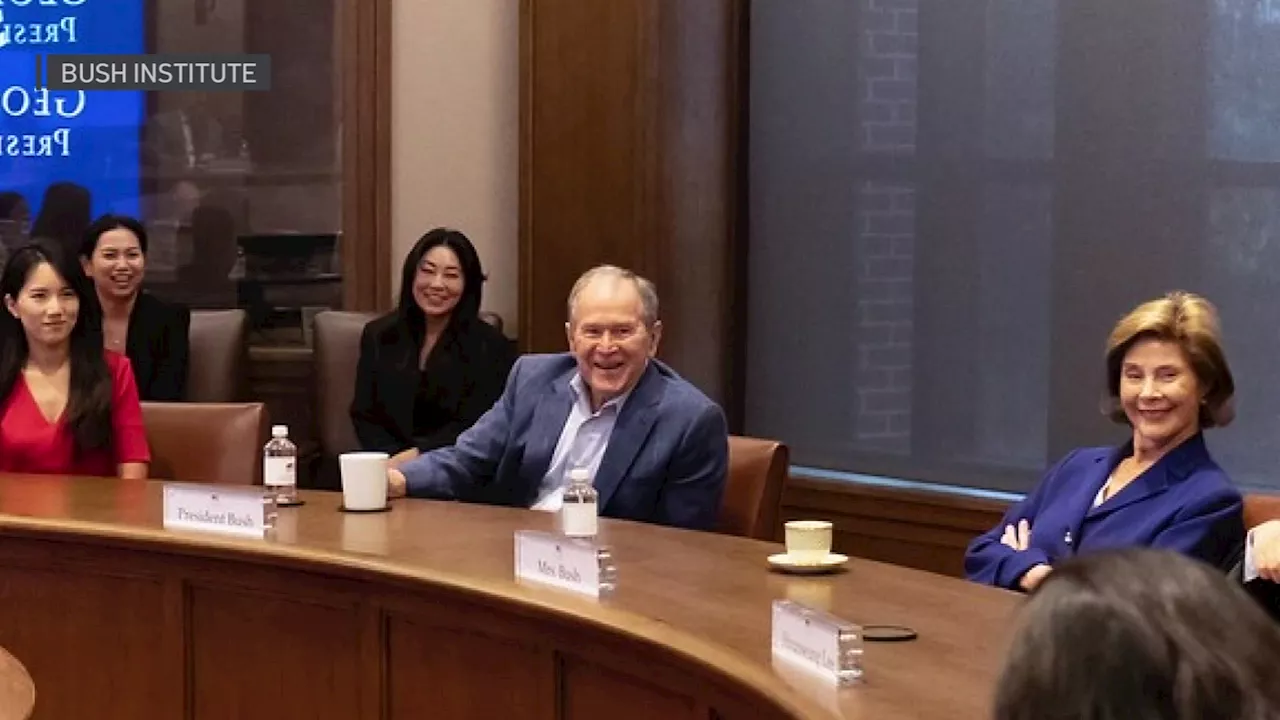 George W. Bush Institute hosts North Korean refugees for 3rd annual North Korean Human Rights WorkshopSome North Korean refugees are learning leadership skills to use their voices for change.
George W. Bush Institute hosts North Korean refugees for 3rd annual North Korean Human Rights WorkshopSome North Korean refugees are learning leadership skills to use their voices for change.
Read more »
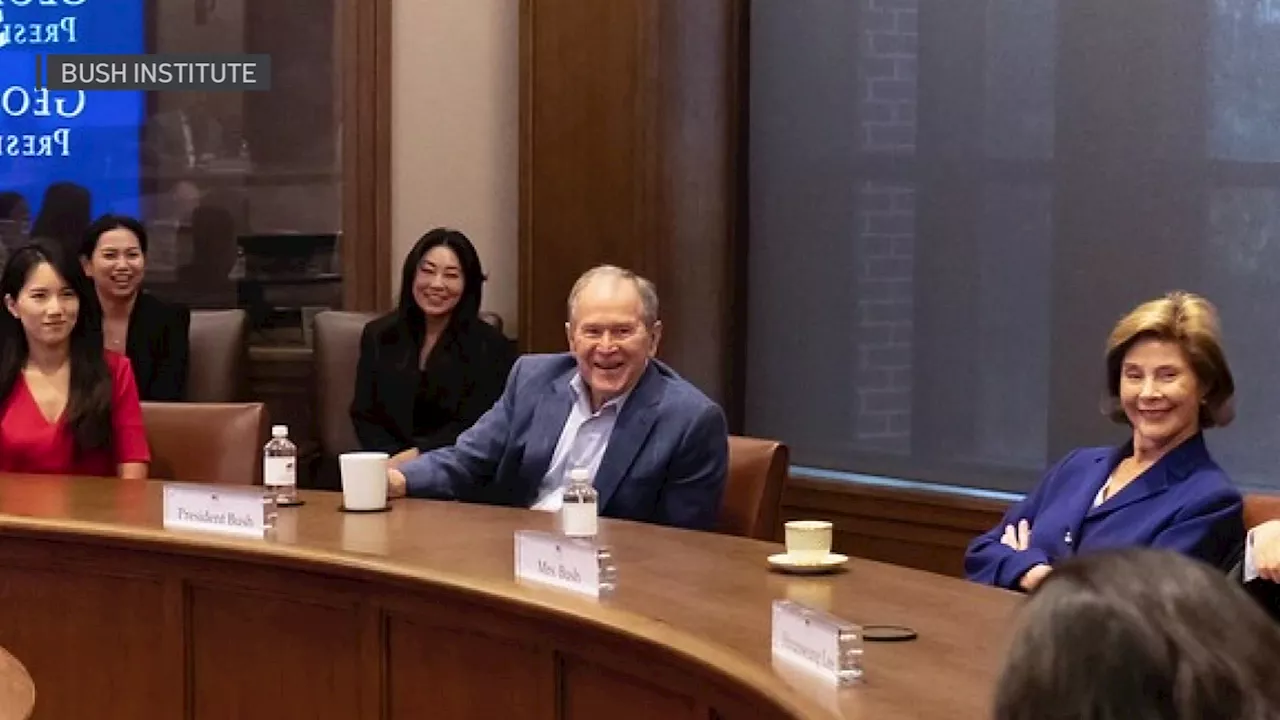 George W. Bush Institute hosts North Korean refugees for 3rd annual North Korean Human Rights WorkshopSome North Korean refugees are learning leadership skills to use their voices for change.
George W. Bush Institute hosts North Korean refugees for 3rd annual North Korean Human Rights WorkshopSome North Korean refugees are learning leadership skills to use their voices for change.
Read more »
 South Korean chip executive detained again over alleged technology leak to ChinaSouth Korean chip executive detained again over alleged technology leak to China
South Korean chip executive detained again over alleged technology leak to ChinaSouth Korean chip executive detained again over alleged technology leak to China
Read more »
 Four Italian and South Korean climbers are found dead close to Mont Blanc's summitFrench rescuers say they have found the bodies of two Italian and two South Korean climbers close to the peak of Mont Blanc on the French side
Four Italian and South Korean climbers are found dead close to Mont Blanc's summitFrench rescuers say they have found the bodies of two Italian and two South Korean climbers close to the peak of Mont Blanc on the French side
Read more »
